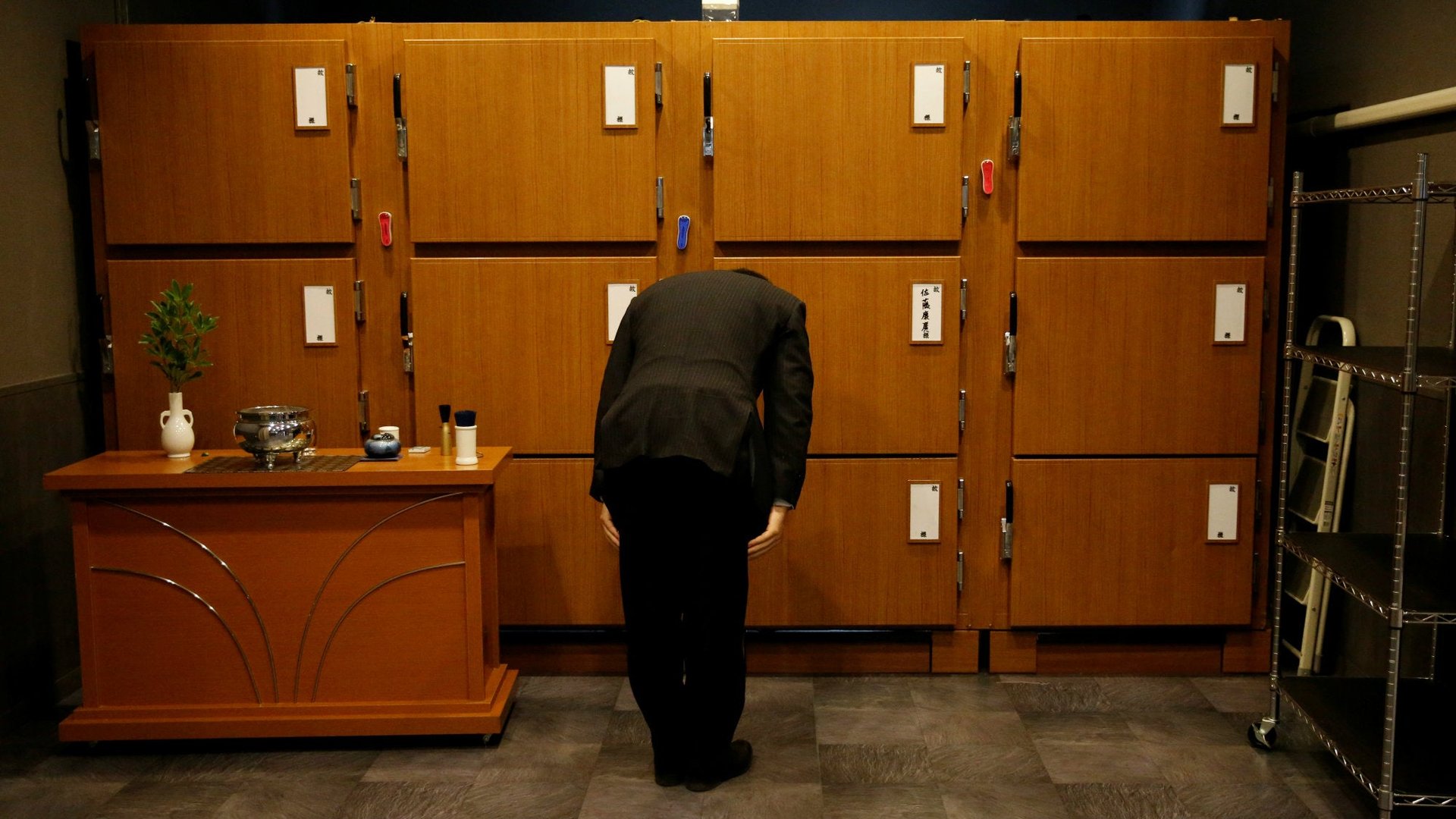A business executive’s dying request says a lot about how to live
Late last month Satoru Anzaki, a former president of the heavy machinery manufacturer Komatsu, placed an advertisement in a national newspaper in Japan. The ad revealed the sobering news that the 80-year-old businessman had terminal gallbladder cancer, for which he had declined further treatment.


Late last month Satoru Anzaki, a former president of the heavy machinery manufacturer Komatsu, placed an advertisement in a national newspaper in Japan. The ad revealed the sobering news that the 80-year-old businessman had terminal gallbladder cancer, for which he had declined further treatment.
He also announced one final project: a party for former employees, colleagues, and friends, to thank them for the role they played in a long and prosperous life.
“I’m satisfied that I was able to shake hands with the people I met during my lifetime and say thank you to them,” Anzaki told reporters after the party Dec. 11 at a Tokyo hotel, at which traditional dancers from his home prefecture performed before 1,000 guests. “I have enjoyed my life very much. . . I thought that being despondent is not in my nature.”
The size and stature of his farewell send-off may be unique, but Anzaki is not the first person to hold such an event. Living wakes—gatherings in celebration of a dying person, held while the guest of honor is alive and able to enjoy the festivities—are a niche but growing ritual, spurred by increased use of hospice care and an aging demographic of baby boomers accustomed to reshaping milestones to their tastes. The New York Times described one such party at the bedside of the civil rights activist John Shields as “an Irish wake, without grief’s frantic edge.”
It’s notable that Anzaki, who served as president of Komatsu from 1995 to 2001, and then later as company chairman, reflected afterwards on the satisfaction of showing gratitude toward others, rather than receiving accolades for his long career. As Quartz’s Ephrat Livni has pointed out, expressing gratitude has powerful psychological and physiological benefits, from reducing anxiety to improving immune function.
Attending such a party (or reading about one) has benefits as well: considering death invariably leads to reflections on life. Is your current business partner the type of person you’d want at your last hurrah? Do you need to wait for a living wake to express gratitude to the mentors, colleagues, and employees who have enriched your career and life?
“It was a very fun event,” one former employee told the Japanese broadcaster NHK. “I am also suffering from an illness so it got me thinking how I want live the rest of my life.”